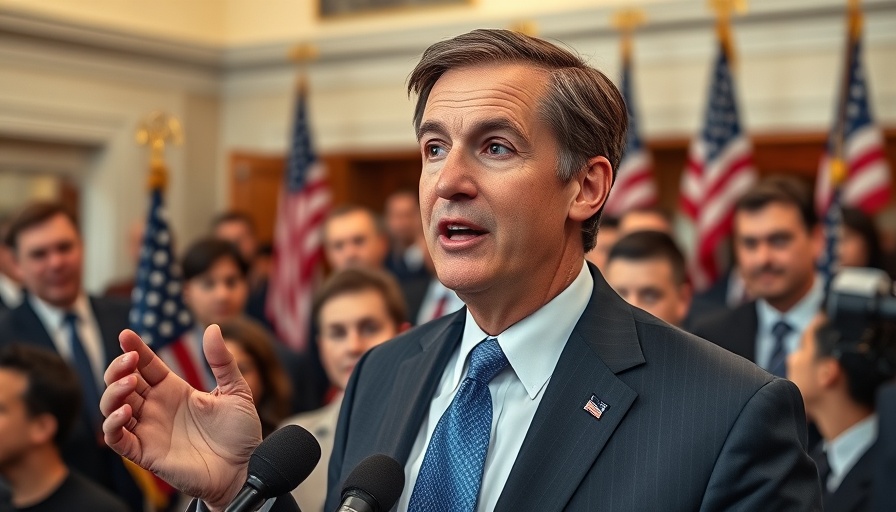
Cuomo's Comeback: The 'Cuo Garden' Strategy Explained
Ex-New York Governor Andrew Cuomo's return to the political spotlight is drawing significant attention as he aims for the mayoral seat in New York City. Critics accuse him of employing a 'Cuo Garden' strategy — an updated twist on the traditional 'Rose Garden' campaign tactic. This strategy, adapted from President Jimmy Carter's critiques against then-incumbent Gerald Ford, involves capitalizing on the aura of authority while minimizing direct public engagement.
What is the 'Rose Garden' Strategy?
The term 'Rose Garden' refers to a political maneuver where leaders leverage their official responsibilities to gain publicity. In Cuomo's case, his past criticisms from political adversaries suggest he is opting for a similar playbook by minimizing exposure to media inquiries and limiting interactions with voters. This model raises questions about accountability and transparency, particularly given Cuomo's controversial departure from the governor's office amid allegations of misconduct and poor pandemic responses.
Accusations and Counterarguments
Lauren Hitt, spokesperson for the anti-Cuomo group New Yorkers for Better Leadership, argues that Cuomo's strategy is indicative of a deeper flaw in his campaign. “He plays the tough guy but avoids tough questions,” Hitt stated. This sentiment is echoed by various political analysts who emphasize that avoiding scrutiny in a city that is experiencing numerous challenges might not sit well with voters eager for genuine dialogue about governance and leadership integrity.
Cuomo's Response to Criticism
Despite accusations from his critics, Cuomo remains steadfast in defending his campaign strategy. His spokesperson Richard Azzopardi has dismissed the critiques as 'provably false,' siding with the argument that Cuomo's opponents are preoccupied with his candidacy instead of promoting their agendas. This highlights a critical dynamic in political campaigns, suggesting that when candidates become front-runners, they often attract intense scrutiny and rivalry.
Political Landscape: Who Benefits?
As Cuomo seeks endorsements and engages selectively with the public, it raises a question: will this approach win over skeptical voters? Political consultant O'Brien 'OB' Murray notes that every campaign has its messaging strategies, especially when the stakes feel high. Rivals must adapt their approaches to engage an electorate weary from the tumult of recent years, particularly regarding leadership accountability and public health management.
Future Implications for New York Politics
As we navigate the implications of Cuomo's strategy, it remains crucial to consider how local and national norms are shifting in favor of transparency and in-person engagement. The offshoot of Cuomo's method might determine not just his chances in the mayoral race but set precedents for future elections where the strategies of engagement and public interaction evolve in the face of a more informed electorate.
Conclusion: What’s Next?
As Cuomo's campaign progresses, voters must weigh his achievements against the baggage of his past. Can he effectively navigate the politics of the city and uphold a narrative that resonates? It is essential for citizens to voice their concerns and demand accountability from leaders as they head to the polls. Cuomo's decisions today could redefine the landscape of New York City politics for years to come.
Stay informed about the latest updates on Cuomo’s campaign and how local politics unfold by following dedicated news outlets.
 Add Element
Add Element  Add Row
Add Row 



 Add Row
Add Row  Add
Add 


Write A Comment